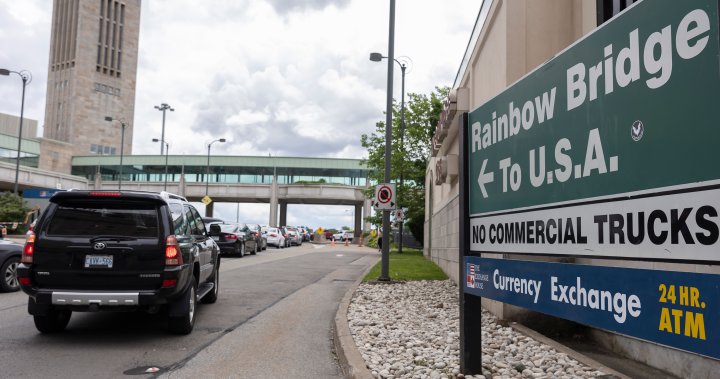Travel
Sask. First Nations families travel to France for unveiling of D-Day statue | CBC News

Peepeekisis Cree Nation soldier Charles Bird stormed Juno Beach 80 years ago with 14,000 other Canadians.
Bird, tasked with hauling ladders and other equipment during the key battle, continued to advance with his Regina Rifles comrades.
“I think of the fear of landing on that beach, of what they had to go through and what they saw — their fellow men falling to the ground, never coming home,” Bird’s son, Allan, said in a recent interview.
Charles Bird survived D-Day, but was later wounded in the foot, leg and shoulder. Bird was treated and sent back to the front, continuing to fight before he and dozens of others returned to Peepeekisis in southern Saskatchewan.
Allan Bird and other Peepeekisis members have travelled to France for a ceremony honouring his late father and other members of the Regina Rifles.
On June 5, a 2.5-metre-high bronze statue will be unveiled at la Place des Canadiens in Bretteville-sur-Mer, France, to honour their fathers and grandfathers who stormed the beaches of Normandy 80 years ago. The statue was created by an Alberta artist after 18 months of fundraising by the Regina Rifles and contributions from Peepeekisis.
Allan said the ceremony will be an emotional experience.
“Our spirit will be there with the spirit of those gone on in a powerful way, with creator looking upon us and blessing us,” he said.
This statue, first revealed in Regina in early April, was flown to Normandy, France, and will be ceremonially unveiled on June 5 in Bretteville-sur-Mer at la Place des Canadiens, where it will stand in honour of Canadian soldiers.
Bird serves as a headman, or councillor, at Peepeekisis. Before they left for Europe, the travellers attended a small ceremony in Regina where Lt.-Gov. Russ Merasty presented them with a miniature version of the statue, thanking them for their community’s service.
“It’s very meaningful for us to host you and hear your stories, your nation’s stories,” said Merasty.
Peepeekisis members served in other units as well. Fellow headman Blaine Pinay’s father, Edward Pinay, was wounded on D-Day after he was dropped in as a paratrooper.
“We will never understand how they suffered because we weren’t in their shoes,” Blaine said. “We will never understand how bad it was or how traumatizing it was for them.”

First Nations people were exempt from military service, but volunteered at higher rates than non-Indigenous Canadians. Peepeekisis members accounted for 20 per cent of the entire Regina Rifles contingent during the Second World War.
“It was amazing,” said retired Regina Rifles Brig.-Gen. Cliff Walker, who was also at the Saskatchewan ceremony.
“That was the choice that they made to step forward, put their hand in the creator’s hand, and go off and do battle with the Nazis in Europe. And the contribution from that First Nation and other First Nations across the province was just remarkable.”
But First Nations veterans weren’t treated as equals when they returned home. They were denied farm land and other benefits given to their non-Indigenous comrades.
Peepeekis Chief Frank Dieter said it’s wonderful to celebrate the contributions of their veterans, but that we must not forget these injustices.

“They didn’t have to go, but they went, right?” Dieter said.
“They thought they were fighting for a better life, but they just came back to the same life, right? So, little mixed emotions at the moment, but I’m very honoured that they went because we’re a nation of warriors.”
Before the statue is unveiled this week, the Peepeekisis delegation plans to stand on the beach and conduct a quiet spiritual ceremony. They say they’ll remember their warriors and continue their fight for justice.
“We’re all related in the eyes of creator. We’re all related no matter who you are,” Allan Bird said. “That statue, for our veterans, will show our pride and our love and the sacrifices of our ancestors and what they fought for.”












